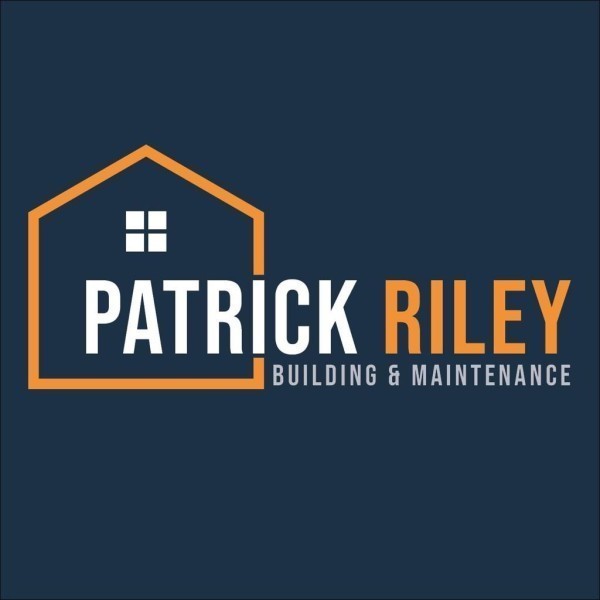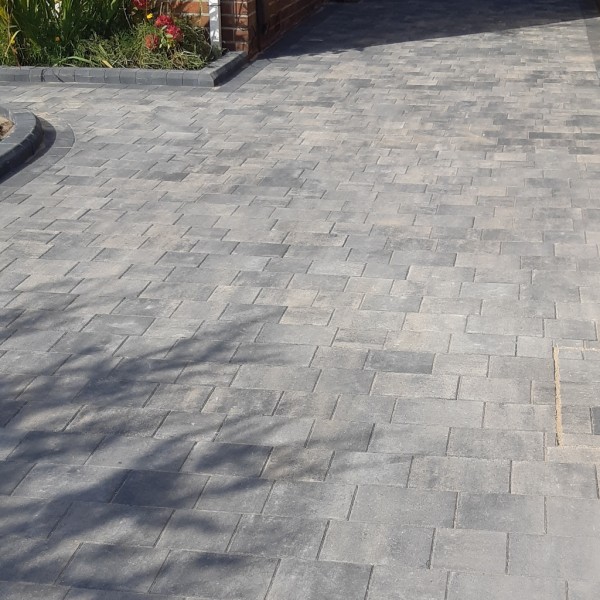Garden Fencing in St Helens
Search Garden Fencing in places nearby
Introduction to Garden Fencing in St Helens
Garden fencing in St Helens is more than just a boundary marker; it's an essential part of any garden's design and functionality. Whether you're looking to enhance privacy, improve security, or simply add a touch of style to your outdoor space, the right fence can make all the difference. In this article, we'll explore the various aspects of garden fencing in St Helens, from types and materials to installation tips and maintenance advice, ensuring you have all the information you need to make an informed decision.
The Importance of Garden Fencing
Garden fencing serves multiple purposes. It provides privacy, keeping prying eyes away from your personal space. It also enhances security, deterring potential intruders. Additionally, a well-chosen fence can add aesthetic value to your garden, complementing the landscape and architecture of your home. In St Helens, where gardens are cherished, fencing is a crucial element in maintaining the beauty and functionality of outdoor spaces.
Privacy and Security
One of the primary reasons homeowners in St Helens invest in garden fencing is to ensure privacy. A tall, solid fence can create a secluded oasis, allowing you to enjoy your garden without feeling exposed. Security is another significant concern, and a sturdy fence acts as a barrier against unwanted visitors, providing peace of mind.
Aesthetic Appeal
Beyond functionality, garden fencing can significantly enhance the visual appeal of your property. With a variety of styles and materials available, you can choose a fence that complements your garden's design. Whether you prefer a traditional wooden fence or a modern metal design, the right choice can elevate your garden's overall look.
Types of Garden Fencing in St Helens
When it comes to garden fencing in St Helens, there's no shortage of options. Each type of fence offers unique benefits, and the best choice depends on your specific needs and preferences. Let's explore some popular types of garden fencing available in the area.
Wooden Fencing
Wooden fencing is a classic choice, known for its natural beauty and versatility. It's available in various styles, including picket, panel, and lattice designs. Wooden fences can be painted or stained to match your garden's aesthetic, and they offer excellent privacy and security. However, they require regular maintenance to prevent rot and weather damage.
Metal Fencing
Metal fencing, such as wrought iron or aluminium, offers a sleek and modern look. It's highly durable and requires minimal maintenance, making it a practical choice for many homeowners. Metal fences can be customised with decorative elements, adding a touch of elegance to your garden.
Vinyl Fencing
Vinyl fencing is a popular choice for those seeking a low-maintenance option. It's resistant to weathering, insects, and rot, ensuring longevity. Vinyl fences come in various styles and colours, allowing you to achieve the desired look without the hassle of regular upkeep.
Composite Fencing
Composite fencing combines the best of both worlds, offering the appearance of wood with the durability of plastic. It's an eco-friendly option, often made from recycled materials. Composite fences are resistant to fading, warping, and insect damage, making them a long-lasting choice for St Helens gardens.
Choosing the Right Material for Your Garden Fence
Selecting the right material for your garden fence is crucial to ensure it meets your needs and withstands the test of time. Consider factors such as durability, maintenance requirements, and aesthetic appeal when making your decision.
Durability and Longevity
Durability is a key consideration when choosing a fencing material. Wooden fences, while beautiful, may require more maintenance to prevent decay. Metal and vinyl fences, on the other hand, offer excellent durability with minimal upkeep. Composite fencing provides a balance, offering the look of wood with enhanced longevity.
Maintenance Requirements
Consider how much time and effort you're willing to invest in maintaining your fence. Wooden fences need regular treatment to protect against the elements, while metal and vinyl options require less frequent attention. Composite fencing is a low-maintenance choice, ideal for busy homeowners.
Aesthetic Considerations
Your garden fence should complement the overall design of your outdoor space. Wooden fences offer a traditional look, while metal and vinyl options provide a modern touch. Composite fencing can mimic the appearance of wood, offering versatility in design. Choose a material that aligns with your garden's style and enhances its beauty.
Installation Tips for Garden Fencing in St Helens
Installing a garden fence in St Helens requires careful planning and execution. Whether you're tackling the project yourself or hiring a professional, these tips will help ensure a successful installation.
Planning and Preparation
Before installation, assess your garden's layout and determine the fence's purpose. Measure the area accurately and consider any obstacles, such as trees or slopes. Obtain any necessary permits and check local regulations to ensure compliance.
Choosing the Right Tools and Materials
Having the right tools and materials is essential for a smooth installation process. Depending on the type of fence, you may need a post hole digger, level, saw, and drill. Ensure you have all necessary components, such as posts, panels, and fasteners, before beginning the project.
Step-by-Step Installation Guide
- Mark the Fence Line: Use stakes and string to outline the fence's path, ensuring it's straight and level.
- Dig Post Holes: Use a post hole digger to create holes for the fence posts, ensuring they're deep enough for stability.
- Set the Posts: Place the posts in the holes and fill with concrete, ensuring they're level and aligned.
- Attach Panels or Rails: Once the posts are secure, attach the fence panels or rails, using a level to ensure they're straight.
- Finish and Secure: Add any finishing touches, such as caps or decorative elements, and secure all components firmly.
Maintaining Your Garden Fence
Proper maintenance is essential to keep your garden fence looking its best and prolong its lifespan. Regular care will prevent damage and ensure your fence remains a beautiful and functional part of your garden.
Regular Cleaning and Inspection
Clean your fence regularly to remove dirt, debris, and mildew. Use a mild detergent and water for wooden fences, and a pressure washer for metal and vinyl options. Inspect your fence for signs of damage, such as loose boards or rust, and address any issues promptly.
Protecting Against Weather Damage
Weather can take a toll on your garden fence, especially in St Helens' variable climate. Apply a weatherproof sealant to wooden fences to prevent rot and warping. Metal fences may require a rust-resistant coating, while vinyl and composite options are generally weather-resistant.
Repairing and Replacing Components
Over time, your fence may require repairs or replacement of certain components. Replace damaged boards or panels promptly to maintain the fence's integrity. Tighten loose screws or bolts and ensure all parts are secure. Regular maintenance will extend the life of your fence and keep it looking its best.
Cost Considerations for Garden Fencing in St Helens
The cost of garden fencing in St Helens can vary widely depending on factors such as material, size, and installation complexity. Understanding these cost considerations will help you budget effectively for your fencing project.
Material Costs
The material you choose will significantly impact the overall cost of your fence. Wooden fences are typically more affordable upfront but may require more maintenance over time. Metal and vinyl options tend to be more expensive initially but offer long-term savings due to their durability and low maintenance requirements. Composite fencing falls in the mid-range, offering a balance of cost and longevity.
Installation Expenses
Installation costs can vary based on the complexity of the project and whether you hire a professional or tackle it yourself. Professional installation ensures a high-quality finish but comes at a higher price. DIY installation can save money but requires time, effort, and the right tools.
Long-Term Maintenance Costs
Consider the long-term maintenance costs associated with your chosen fencing material. Wooden fences may require regular treatments and repairs, while metal and vinyl options typically incur lower maintenance expenses. Composite fencing offers a cost-effective solution with minimal upkeep requirements.
Environmental Considerations for Garden Fencing
As environmental awareness grows, many homeowners in St Helens are considering the ecological impact of their garden fencing choices. Sustainable materials and practices can help reduce your fence's environmental footprint.
Sustainable Material Options
Choose materials that are sustainably sourced or made from recycled content. Composite fencing is an eco-friendly option, often made from recycled wood and plastic. Look for wood certified by the Forest Stewardship Council (FSC) to ensure responsible sourcing.
Eco-Friendly Installation Practices
Minimise environmental impact during installation by using eco-friendly practices. Avoid using harmful chemicals and opt for natural treatments and finishes. Recycle any waste materials and dispose of them responsibly.
Long-Term Environmental Impact
Consider the long-term environmental impact of your fence. Durable materials like metal and composite require less frequent replacement, reducing waste. Regular maintenance can extend the life of your fence, minimising its ecological footprint.
Legal and Regulatory Aspects of Garden Fencing in St Helens
Before installing a garden fence in St Helens, it's essential to understand the legal and regulatory aspects. Compliance with local regulations ensures your fence is safe, legal, and neighbour-friendly.
Understanding Local Regulations
Check with your local council for any regulations or restrictions regarding garden fencing. These may include height limits, boundary rules, and material restrictions. Compliance with these regulations is crucial to avoid fines or disputes.
Boundary and Neighbour Considerations
When installing a fence, consider its impact on neighbouring properties. Ensure the fence is within your property boundaries and does not obstruct views or access. Discuss your plans with neighbours to maintain good relations and avoid potential conflicts.
Obtaining Necessary Permits
Depending on the size and location of your fence, you may need to obtain permits from the local council. Ensure all necessary paperwork is completed before beginning the installation to avoid legal issues.
Frequently Asked Questions
- What is the best material for garden fencing in St Helens? The best material depends on your specific needs. Wooden fences offer natural beauty, while metal and vinyl options provide durability. Composite fencing is an eco-friendly choice with low maintenance requirements.
- How high can my garden fence be? Local regulations typically dictate the maximum height for garden fences. Check with your local council for specific guidelines in St Helens.
- Do I need planning permission for a garden fence? Planning permission may be required for fences above a certain height or in specific locations. Consult your local council to determine if permission is necessary.
- How often should I maintain my garden fence? Regular maintenance is essential to prolong the life of your fence. Clean and inspect it annually, and address any repairs promptly.
- Can I install a garden fence myself? Yes, DIY installation is possible with the right tools and preparation. However, professional installation ensures a high-quality finish and may be preferable for complex projects.
- What are the environmental benefits of composite fencing? Composite fencing is made from recycled materials, reducing waste. It's also durable, requiring less frequent replacement, which minimises its environmental impact.
Final Thoughts on Garden Fencing in St Helens
Garden fencing in St Helens is a vital component of any outdoor space, offering privacy, security, and aesthetic appeal. With a variety of materials and styles available, you can find the perfect fence to suit your needs and enhance your garden's beauty. By considering factors such as durability, maintenance, cost, and environmental impact, you can make an informed decision that will benefit your garden for years to come. Whether you choose to install the fence yourself or hire a professional, careful planning and regular maintenance will ensure your garden fence remains a valuable asset to your home.









